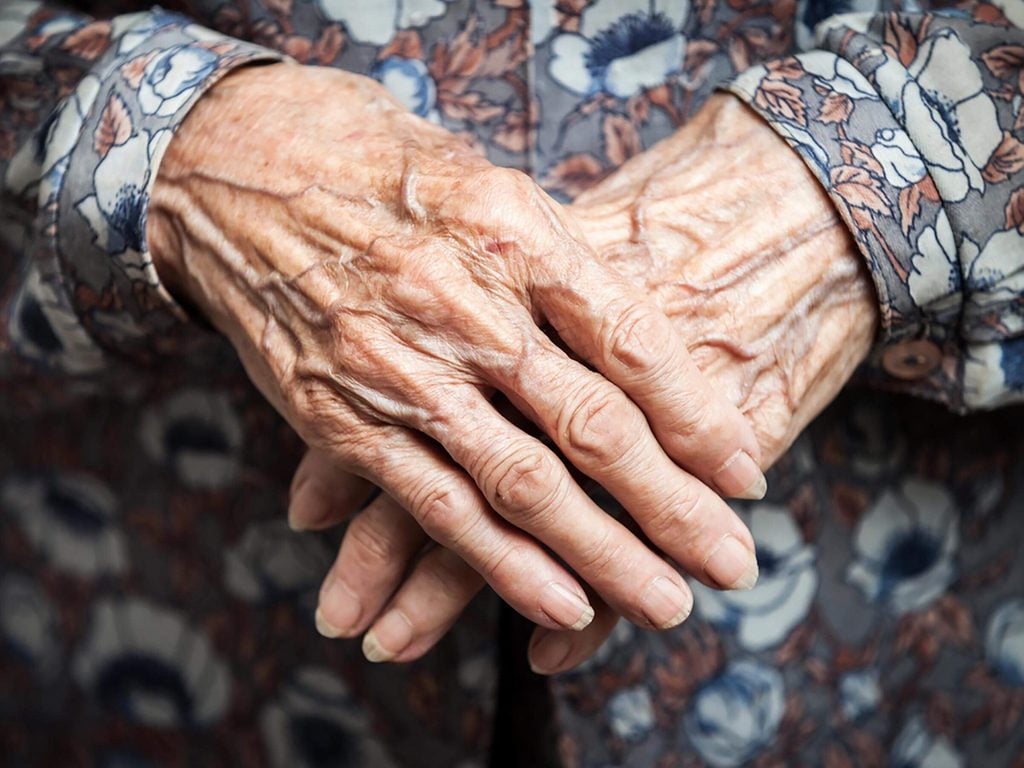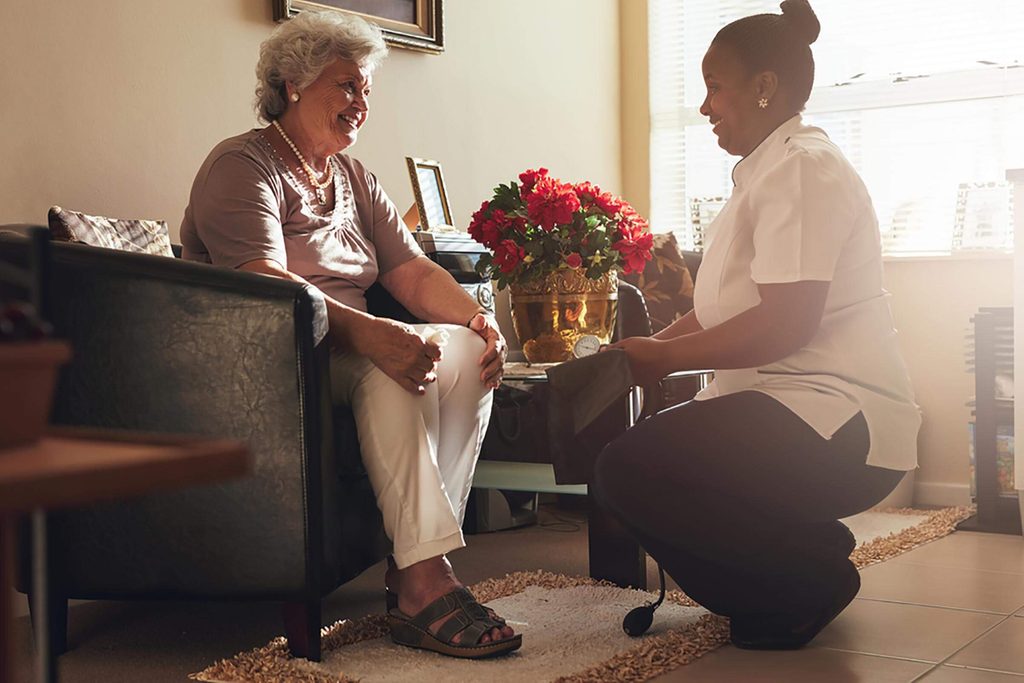
When is it time to get additional help?
Your aging parent might find it difficult to admit he or she needs help (and you might, too, even if you know it’s necessary). With so many various types of care, though, your mom or dad can get the help she or he needs without sacrificing independence. Even if the time has come for full-time care from aides or medical providers, you and your parent can feel more prepared when you understand your available options and what might be best for your parent’s well-being. We want our parents to stay safe and healthy while also maintaining as much independence as possible. But, if your mom has trouble moving around her home, is it safe for her to stay there on her own? What if your dad’s symptoms of dementia are advancing to the point of extreme forgetfulness and erratic behaviors? It may be time to transition your parent to an assisted living facility or nursing home with more intensive care to keep him safe. We asked expert Sharon Roth Maguire, MS, RN, GNP-BC, and Chief Clinical Quality Officer at BrightStar Care®, an in-home care provider, to discuss the different types of senior care for those who aren’t sure what the best option is for their parents. Here are the warning signs that your aging parent shouldn’t be living without some type of care giving.

Levels of in-home care giving
In-home care giving is a broad category that encompasses many types of home health care, such as:
- Housekeeping/companions. Housekeepers or companions can help your parent with things like putting away groceries, cleaning floors, and making the beds, but won’t provide medical care. This type of care giving can help a parent with smaller tasks around the home if they have some issues with stamina or mobility.
- Part-time aide. Part-time aides come to your parent’s home a few times a week to help with tasks, like eating, grooming. Parents who don’t need round-the-clock care but can benefit from some extra hands through the week may prefer a part-time aide. Part-time aides do not complete medical tasks, like administering medications or giving injections.
- Full-time aide. In contrast, full-time aides are available in a parent’s home for most of the day and week. Maguire says, “the caregiver may be in the home Monday through Friday, 8 a.m. to 5 p.m., while the family caregiver is working,” for example. If your parent still lives at home with you, a full-time caregiver may help fill in the gaps when you’re at the office. Much like part-time aides, full-time aides generally help with physical activities, like cooking, cleaning, and grooming, rather than medical services.
- Live-in aide. This type of caregiving is usually for parents who live on their own and need round-the-clock personal care from an aide, like a parent with a physical disability, like cerebral palsy, or a mental disability, like Alzheimer’s. Live-in aides help with similar tasks as part-time and full-time aides, including cooking meals, transporting patients to doctor’s appointments, and helping patients move around the home without injuring themselves. This type of caregiving is especially beneficial when a parent lives alone or is by herself for most of the day, but doesn’t need around-the-clock medical care. However, Maguire points out that “there are specific regulations related to this type of care that need to be followed so that the paid caregiver has adequate break, leisure, and sleep times as well as their own sleeping space.”
- Visiting nurses. Unlike aides, visiting nurses can provide medical care for your parent. They typically are registered nurses (RN), licensed practical nurses (LPN), or licensed vocational nurses (LVN) who can administer drugs, check vital signs, dress wounds, and provide other medical services ordered by your parent’s physician.

When might it be time for in-home care?
Let’s say your parent isn’t capable of standing long enough to wash dishes. Or your dad has become forgetful to the point of potentially creating a hazard for himself by leaving the furnace on too high or forgetting to turn the oven off. Or, perhaps your mom is finding it difficult to motivate herself to get some exercise or partake in social activities. In-home care can be a good option for parents who don’t want to move to a care facility, like a nursing home or assisted living complex and want to maintain a sense of independence, yet may still need some extra help with physical or social activities. If your aging parent is in good enough health that she can remain in her home and receive help from a caregiver, in-home care giving may be the best choice to allow her to have some independence. In-home caregivers can do a variety of tasks that range from housekeeping and transportation to personal care tasks, like grooming and bathing. Don’t miss these ways to make your parent’s home safer.

What can assisted living provide my aging parent?
Assisted living facilities, on the other hand, can help your parent maintain some independence while still having quick access to help if needed. Maguire adds that these facilities “vary widely in the type of services they provide and from state to state in what they are allowed to provide.” Some assisted living facilities, for example, may be allowed to provide physical or occupational therapy to residents, as well as administer their medications, much like a nursing home. Depending on regulations, however, some facilities may not be allowed to provide any medical treatment or therapies and may instead have visiting nurses who complete those tasks. They may also offer community activities, like meals and game nights, for social and emotional support for residents. Here are some ways to help an aging parent transition to assisted living.

When is a nursing home an option?
Nursing homes can provide both short-term and long-term care. If your parent has been hospitalized, she might enter this type of facility for a short period of time after she’s released from the hospital so that she can have additional help from medical personnel, including physical therapy. Long-term care at one of these facilities may be an option if your parent may need daily, long-term medical care under the supervision of trained staff. Does your mom find it difficult to remember to take care of her health, such as keeping up with her medication schedule or remembering to bathe? Or, is your dad finding it difficult to maneuver his way around his apartment without bumping into things or falling? When your parent gets to the point of needing supervision to maintain his health and safety, it may be time to talk to his or her medical team about nursing homes.

What is hospice care and when might my aging parent need it?
Hospice care is given to those who are terminally ill and is beneficial for an aging parent to have the most comfortable experience possible in their home surrounded by those they love. Patients may receive everything from pain management to spiritual guidance in hospice care. Maguire says that parents with Medicare can have coverage for hospice care if their medical team gives them a prognosis of six months or less. This type of care “is focused on comfort, symptom relief, and emotional support of the individual and their family which is provided by a multidisciplinary team either in the individual’s home or in a designated hospice facility when an individual meets certain requirements,” explains Maguire, but it typically won’t include around-the-clock care unless the individual’s symptoms require it. Here are stories from real people who have learned incredible lessons from the deaths of loved ones.